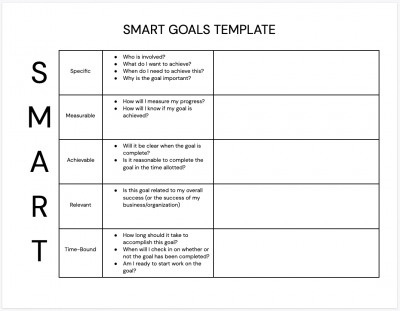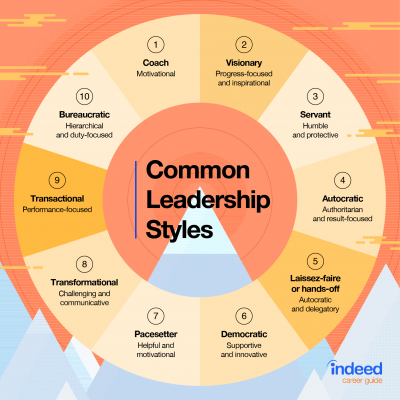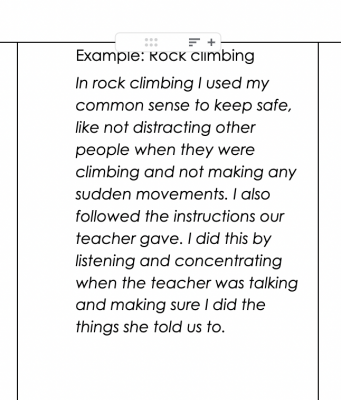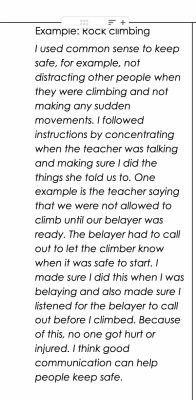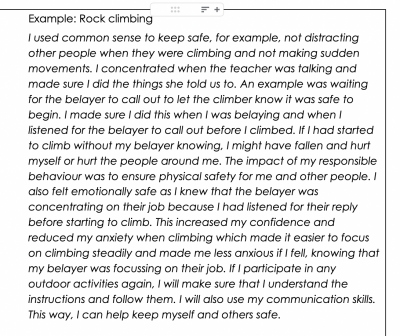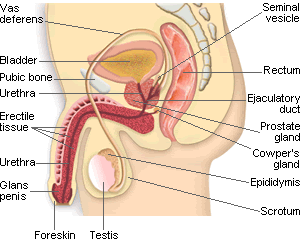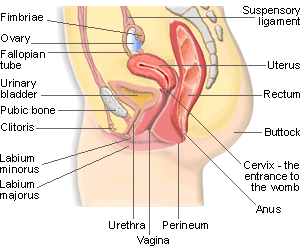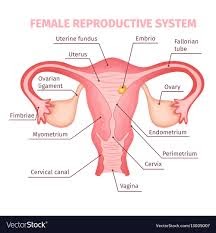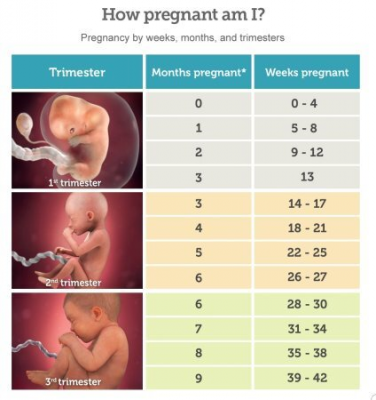10C2 PE and Health
Section outline
-
Term 1 AO's
Relationships with Other People
Relationships
Students will:
-
Identify issues associated with relationships and describe options to achieve positive outcomes.
10PEH Learning Context: Reconnections - Leadership
Learning Intention: To extend our leadership skills in order to be successful leaders for the Year 7 and for future opportunities both inside and out of school.
SOLO Level One Many Relate Extend SOLO Verbs Name, identify, tell, recall, classify, do a simple procedure, list. Describe, enumerate, combine, do algorithms, rank, prioritise. Compare/contrast, explain, causes, effects, integrate, analyse, relate, apply Evaluate, theorise, generalise, hypothesise, reflect, generate Success Criteria -
Identify the key aspects that a leader should demonstrate in order to be successful
-
List the key leadership skills you already
-
Describe how someone can be a good leader
-
Describe how someone can be a poor leader
-
Relate the earlier goal you established to how you can improve your leadership skills now
-
Explain the impacts a good leader has on the functioning of a group
-
Apply your new leadership skills to situations with your peers
-
Evaluate your own ability to lead a group
-
Reflect on your ability to use your leadership skills with the new Year 7 students
-
-
-
-
WELCOME to 10C2PEH! :-)
First off, welcome back! I'm super excited to be teaching you guys in Coast! Can't wait to get into it all!
Learning Intention:
We are learning to extend our leadership skills in order to be successful leaders for the Year 7's at Camp and for future opportunities both inside and out of school.
Success Criteria:
-
Identify the key aspects that a leader should demonstrate in order to be successful
-
List the key leadership skills you already
-
Describe how someone can be a good leader
-
Describe how someone can be a poor leader
-
Relate the goal you established in 2014 to how you can improve your leadership skills now
-
Explain the impacts a good leader has on the functioning of a group
-
Apply your new leadership skills to situations with your peers
-
Evaluate your own ability to lead a group
-
Reflect on your ability to use your leadership skills with the new Year 7 students
1.) Let's catch-up!!
2.) 10C2PEH course page and how Ms Grant uses MHO.
3.) Expectations for PE and Health:
- Always meet in C5 - we will then either stay in class or go to gym and change. I will tell you what's up via MHO.
- Make sure you have your PE gear for every PE session!!!! If you don't have it, I will have a discussion with your and if it becomes a regular occurrence I will contact home.
- HAT and MASK
- NCEA opportunity
4.) What do you want out of PE this year? Your goals. What YOU want to do. What YOU want from me.
Term 1 CONTEXT - Leadership
- What is a leader? Why are leaders important to have? Why is it important that Year 10s are active leaders within our school?
- Lets set a leadership goal for yourself - SMART!!!!
Leadership includes . . . Communication, Co-operation, Responsibility, Flexibility, Patience.
MONDAY - HOLIDAY
TUESDAY - Today we will spend in class. We will learn about SMART goals. And you will work towards making a leadership goal SMART - this will be done on googledocs and also shared with your learning advisor. Why might we share this with our learning advisors? Why are SMART goals important? *** I am away - we will do this next week
THURSDAY- Today we will head outside, our space is the courts. We will play a new game called - Cone Ball - this can be modified to use as a large space game with Year 7s Also, we will focus on communication . . . as listed above. Why could this be a good game for Year 7s. *** housekeeping - health days, etc.
S = Specific
M = Measurable
A = Achievable
R = Realistic
T = Timely
-
-
WELCOME to 10C2PEH! :-)
We will dive into our context this week.
Learning Intention:
We are learning to extend our leadership skills in order to be successful leaders for the Year 7's at Camp and for future opportunities both inside and out of school.
Success Criteria:
-
Identify the key aspects that a leader should demonstrate in order to be successful
-
List the key leadership skills you already
-
Describe how someone can be a good leader
-
Describe how someone can be a poor leader
-
Relate the goal you established in 2014 to how you can improve your leadership skills now
-
Explain the impacts a good leader has on the functioning of a group
-
Apply your new leadership skills to situations with your peers
-
Evaluate your own ability to lead a group
-
Reflect on your ability to use your leadership skills with the new Year 7 students
Term 1 CONTEXT - Leadership
- What is a leader? Why are leaders important to have? Why is it important that Year 10s are active leaders within our school?
- Lets set a leadership goal for yourself - SMART!!!!
Leadership includes . . . Communication, Co-operation, Responsibility, Flexibility, Patience.
MONDAY - Today we will be outside.
We will play a game called Cone Ball. Your focus will be demonstrating good communication in order to be successful as a team.
TUESDAY - Today we will spend in class. This will always be our health/theory session.
1.) We will first learn about the key components that we will focus on when improving our leadership. They are above.
2.) We will learn about SMART goals. And you will work towards making a leadership goal SMART - this will be done on googledocs and also shared with your learning advisor. Why might we share this with our learning advisors? Why are SMART goals important?
3.) We will look at what makes leaders 'good'.
THURSDAY- Today we will head outside, our space is the Kapua (netball side).
We will play a game that works to force you to communicate in different ways in order to lead your team through a challenge. (Junk Yard Pairs/Teams & Foosball)
S = Specific
M = Measurable
A = Achievable
R = Realistic
T = Timely
-
-
WELCOME to 10C2PEH! :-)
We will dive into our context this week.
Learning Intention:
We are learning to extend our leadership skills in order to be successful leaders for the Year 7's at Camp and for future opportunities both inside and out of school.
Success Criteria:
-
Identify the key aspects that a leader should demonstrate in order to be successful
-
List the key leadership skills you already
-
Describe how someone can be a good leader
-
Describe how someone can be a poor leader
-
Relate the goal you established in 2014 to how you can improve your leadership skills now
-
Explain the impacts a good leader has on the functioning of a group
-
Apply your new leadership skills to situations with your peers
-
Evaluate your own ability to lead a group
-
Reflect on your ability to use your leadership skills with the new Year 7 students
Term 1 CONTEXT - Leadership (Reconnect)
Leadership includes . . . Communication, Co-operation, Responsibility, Flexibility, Patience.
MONDAY - Today we will work on learning more games that we can run with Year 7s. - Rock, Paper, Scissors, RUN. Bop It. Bomb Ball.
TUESDAY - Today we will spend in class. This will always be our health/theory session. You should be done your Leadership Goal and have already shared it with your LA. You will be using this for your assessment.
What makes a good leader? You will do some basic research into the below famous leaders to determine what has made them great. Have a look at their personality traits. Do all of them have the same qualities? Are all leaders the same? We will answer these once we've done some initial research.
For the below leaders, (1) make lists on their leadership traits. (2) Also list what other people have said about their leadership style. (3) Finally, make a conclusion about their overall leadership style. You will work through this research on a google doc on our google classroom.
- video
- video
- video
- video
THURSDAY- Today is a Teacher Only Day for SLC.
-
-
WELCOME to 10C2PEH! :-)
We will dive into our context this week.
Learning Intention:
We are learning to extend our leadership skills in order to be successful leaders for the Year 7's at Camp and for future opportunities both inside and out of school.
Success Criteria:
-
Identify the key aspects that a leader should demonstrate in order to be successful
-
List the key leadership skills you already
-
Describe how someone can be a good leader
-
Describe how someone can be a poor leader
-
Relate the goal you established in 2014 to how you can improve your leadership skills now
-
Explain the impacts a good leader has on the functioning of a group
-
Apply your new leadership skills to situations with your peers
-
Evaluate your own ability to lead a group
-
Reflect on your ability to use your leadership skills with the new Year 7 students
Term 1 CONTEXT - Leadership (Reconnect)
Leadership includes . . . Communication, Co-operation, Responsibility, Flexibility, Patience.
MONDAY - Today we will be on the field.
We will learn variations of Rob The Nest and Force Back as other activities to play with our Year 7s.
TUESDAY - Today we will spend in class. This will always be our health/theory session.
1.) We will go through your assessment for the term.
2.) You will have time to finalise your SMART goal and upload it as the first completed component of your assessment. The upload spot for this is at the top of this MHO page. Your upload needs to be done today as stipulated in your assessment as you have had two sessions (hours) to now work on this SMART goal.
THURSDAY- Today we will be on Kapua - netball side.
The activities we will do today will be ones you can choose to teach/play with your Year 7 group.
-
-
WELCOME to 10C2PEH! :-)
We will dive into our context this week.
Learning Intention:
We are learning to extend our leadership skills in order to be successful leaders for the Year 7's at Camp and for future opportunities both inside and out of school.
Success Criteria:
-
Identify the key aspects that a leader should demonstrate in order to be successful
-
List the key leadership skills you already
-
Describe how someone can be a good leader
-
Describe how someone can be a poor leader
-
Relate the goal you established in 2014 to how you can improve your leadership skills now
-
Explain the impacts a good leader has on the functioning of a group
-
Apply your new leadership skills to situations with your peers
-
Evaluate your own ability to lead a group
-
Reflect on your ability to use your leadership skills with the new Year 7 students
Term 1 CONTEXT - Leadership (Reconnect)
Leadership includes . . . Communication, Co-operation, Responsibility, Flexibility, Patience.
MONDAY
- Today we will be on the field
Today we will play Kick Ball.
TUESDAY - Today we will spend in class. This will always be our health/theory session.1.) Reminder - you needed to upload your SMART goal as part 1 of your assessment. This was due last week.
2.) Today you will be in your Year 10 Leadership 'groups'. These are the groups you will be working in when working with the Year 7s. In your groups today, you will be creating a game to run with your own class in Week 7 or 8. It can be a bigger game that we have played in PE before or one your group makes up on their own. You will be running it with your class as a way to work towards your leadership goal, and improve your knowledge of games to use with your Year 7 groups.
3.) You also need to have another round of 'back pocket games' to run with your Year 7s on Friday.
THURSDAY - Today we will be on Kapua - netball
We will play a fun game that you can also use with your Year 7s during FFR. Either Kick Ball or 3 Bat Cricket - depending on our numbers.
-
-
WELCOME to 10C1PEH! :-)
We will dive into our context this week.
Learning Intention:
We are learning to extend our leadership skills in order to be successful leaders for the Year 7's at Camp and for future opportunities both inside and out of school.
Success Criteria:
-
Identify the key aspects that a leader should demonstrate in order to be successful
-
List the key leadership skills you already
-
Describe how someone can be a good leader
-
Describe how someone can be a poor leader
-
Relate the goal you established in 2014 to how you can improve your leadership skills now
-
Explain the impacts a good leader has on the functioning of a group
-
Apply your new leadership skills to situations with your peers
-
Evaluate your own ability to lead a group
-
Reflect on your ability to use your leadership skills with the new Year 7 students
Term 1 CONTEXT - Leadership (Reconnect)
Leadership includes . . . Communication, Co-operation, Responsibility, Flexibility, Patience.
MONDAY - Today we will be on the field. We will play 3 Bat Cricket.
TUESDAY - Today we will spend in class. This will always be our health/theory session.
1.) Reminder - you needed to upload your SMART goal as part 1 of your assessment. This was due 2 weeks ago.
2.) Reflections from previous sessions - you will complete your own reflection in your book about how you feel you are progressing towards your goal and what you need to work on.
3.) Group/individual feedback. I will be providing you with feedback (both group and individual), so you can work towards improving your goal. You need to record this feedback in your diary, so you can use it at the end of assessment reflection.
THURSDAY- Today we will be on Kapua - netball side.
Today we will start to rotate through your own games that you have developed. I have emailed out what groups are going when.
Today (Thursday 17 March) - Group 4 will run their 'big' game with the class - Puneet, Mere, Arshdeep, Ahmed, Jessica, Saeed, Dalyn
-
-
WELCOME to 10C1PEH! :-)
We will dive into our context this week.
Learning Intention:
We are learning to extend our leadership skills in order to be successful leaders for the Year 7's at Camp and for future opportunities both inside and out of school.
Success Criteria:
-
Identify the key aspects that a leader should demonstrate in order to be successful
-
List the key leadership skills you already
-
Describe how someone can be a good leader
-
Describe how someone can be a poor leader
-
Relate the goal you established in 2014 to how you can improve your leadership skills now
-
Explain the impacts a good leader has on the functioning of a group
-
Apply your new leadership skills to situations with your peers
-
Evaluate your own ability to lead a group
-
Reflect on your ability to use your leadership skills with the new Year 7 students
Term 1 CONTEXT - Leadership (Reconnect)
Leadership includes . . . Communication, Co-operation, Responsibility, Flexibility, Patience.
MONDAY
Today we will be on the field.
Today we will continue to rotate through your own games that you have developed. I have emailed out what groups are going when.
Today - Monday 21 March - Group 6 - Aarav, Victoria, Kristine, Saif, Gaurav, Jasleen, Sidney, Elieza, Nathaniel
TUESDAY - Today we will spend in class. This will always be our health/theory session.
1.) Reminder - you needed to upload your SMART goal as part 1 of your assessment. This was due 2 weeks ago.
2.) Reflections from previous sessions - you will complete your own reflection in your book about how you feel you are progressing towards your goal and what you need to work on.
3.) Group/individual feedback. I will be providing you with feedback (both group and individual), so you can work towards improving your goal. You need to record this feedback in your diary, so you can use it at the end of assessment reflection.
THURSDAY- Today we will be on Kapua - netball side.
Today we will continue to rotate through your own games that you have developed. I have emailed out what groups are going when.
Today - Thursday 24 March - Group 5 - Anya, Lara, Yash, Ahyaan, Netalie, Calais, Isis, Harpreet
-
-
WELCOME to 10C2PEH! :-)
We will dive into our context this week.
Learning Intention:
We are learning to extend our leadership skills in order to be successful leaders for the Year 7's at Camp and for future opportunities both inside and out of school.
Success Criteria:
-
Identify the key aspects that a leader should demonstrate in order to be successful
-
List the key leadership skills you already
-
Describe how someone can be a good leader
-
Describe how someone can be a poor leader
-
Relate the goal you established in 2014 to how you can improve your leadership skills now
-
Explain the impacts a good leader has on the functioning of a group
-
Apply your new leadership skills to situations with your peers
-
Evaluate your own ability to lead a group
-
Reflect on your ability to use your leadership skills with the new Year 7 students
Term 1 CONTEXT - Leadership (Reconnect)
Leadership includes . . . Communication, Co-operation, Responsibility, Flexibility, Patience.
MONDAY
TOD
TUESDAY - Today we will spend in class. This will always be our health/theory session.
Today you will be writing the final reflection for your assessment. The template for this is on the google classroom and needs to be uploaded on MHO as a PDF by the end of our health session.
THURSDAY- Today we will be on Kapua - netball side.
-
-
WELCOME to 10C2PEH! :-)
We will dive into our context this week.
Learning Intention:
We are learning to extend our leadership skills in order to be successful leaders for the Year 7's at Camp and for future opportunities both inside and out of school.
Success Criteria:
-
Identify the key aspects that a leader should demonstrate in order to be successful
-
List the key leadership skills you already
-
Describe how someone can be a good leader
-
Describe how someone can be a poor leader
-
Relate the goal you established in 2014 to how you can improve your leadership skills now
-
Explain the impacts a good leader has on the functioning of a group
-
Apply your new leadership skills to situations with your peers
-
Evaluate your own ability to lead a group
-
Reflect on your ability to use your leadership skills with the new Year 7 students
We will begin to look at our Term 2 context.
MONDAY
Today we will be based on the starts to the field. We will play Capture the Flag.
TUESDAY - Today we will spend in class. This will always be our health/theory session.
In Term 2, we will look at Outdoor Education activities and how risk in managed while participating in them.
Risk management procedures control how physical activities are performed and reduces likelihood of injury. You will be working to manage the risks. Risks thus need to be identified in the following categories:
- equipment
- environment
- people - actual vs. perceived risk also occurs here
We will then go through the key safety behaviours needed to help manage these risk. LOOKS LIKE/FEELS LIKE/SOUNDS LIKE.
- Co-operation with others – how I work with others.
- Self-management – being on time, right place, bringing the right gear.
- Compliance with Instructions – doing what has been requested.
- Care of equipment –- using equipment appropriately.
- Appropriate communication – how I talk to and respond to others.
- Teamwork – how I work with others for a common purpose.
- Assisting and supporting others – helping others out and encouraging them.
- Tolerance – being patient and respectful.
- Conflict resolution – dealing with issues between other people in a responsible and appropriate way.
You will be placed in expert groups and be responsible for understanding one of the above safety behaviours.
*** make sure to bring your book on Thursday
THURSDAY- Today we will be on Kapua - netball side.
Today, we will complete a partner blind folded activity that will help you understand these safety behaviours. You need to think back to our Tuesday session and bring your book outside with you.
-
-
WELCOME to 10C2PEH! :-)
We will dive into our context this week.
Learning Intention:
We are learning to extend our leadership skills in order to be successful leaders for the Year 7's at Camp and for future opportunities both inside and out of school.
Success Criteria:
-
Identify the key aspects that a leader should demonstrate in order to be successful
-
List the key leadership skills you already
-
Describe how someone can be a good leader
-
Describe how someone can be a poor leader
-
Relate the goal you established in 2014 to how you can improve your leadership skills now
-
Explain the impacts a good leader has on the functioning of a group
-
Apply your new leadership skills to situations with your peers
-
Evaluate your own ability to lead a group
-
Reflect on your ability to use your leadership skills with the new Year 7 students
We will begin to look at our Term 2 context.
I am away this week in Canada. You will have a reliever for your sessions below.
MONDAY
Today you will be playing Capture the Flag on the rugby field.
TUESDAY - Today we will spend in class. This will always be our health/theory session.
You will continue with your Term 2 learning - Responsible Safety Behaviours for Outdoor Activities. You will complete the following task with the reliever.
1.) Understand the following terms by copying them into your books. They will be written on the board.
Physical Safety - this is the care one takes to ensure someone's body is not injured/hurt. Working to protect one's physical safety means a reduction in broken bones, concussions, cuts, bruises, and even death.
Emotional Safety - this is the care one takes to ensure someone's emotions/feelings are cared for. Working to protect one's emotional safety means that they are less nervous, anxious, frightened, threatened, etc.
So now we know about the key safety behaviours (from last week) what are some ways these are incorporated into life? We will complete an investigation into Aaron Ralston. Below is the trailer for 127 Hours and an interview with him. Together as a class you will watch both videos.2.) In your books, answer the following questions after watching both clips. You need to write the questions in your books as well.
1.) What happened to him? What went wrong?
2.) What did he not do ahead of his trip?
3.) How was his physical safety and his emotional safety impacted?
4.) What safety behaviours should be have demonstrated and how would such a demonstration alter his outcome?
THURSDAY- Today we will be on Kapua - netball side.
Today, you will be on Kapua. You will be playing Cones.
-
-
WELCOME to 10C2PEH! :-)
We will dive into our context this week.
Learning Intention:
We are learning how to demonstrate key safety behaviours in order to successfully participate in Outdoor Eduction activities and understand how such activities can be more sustainable.
Success Criteria:
- Define the key safety behaviours
- Define what outdoor education and outdoor activities are
- Understand physical and emotional safety
- Explore how safety behaviours and their correct/incorrect demonstration influence physical and emotional safety.
- Demonstrate key safety behaviours in chosen activities
- Reflect on your own personal demonstration of these safety behaviours
Term 2 Context - Sustainability
MONDAY
Can you remember some of the safety behaviours from the end of last term?
We will be using Appropriate Communication to complete an activity with a partner/small group today.
Blind folds
TUESDAY - Today we will spend in class. This will always be our health/theory session.
We will be reviewing the work you did the final week of term with the reliever.
1.) Understand the following terms by copying them into your books. They will be written on the board.
Physical Safety - this is the care one takes to ensure someone's body is not injured/hurt. Working to protect one's physical safety means a reduction in broken bones, concussions, cuts, bruises, and even death.
Emotional Safety - this is the care one takes to ensure someone's emotions/feelings are cared for. Working to protect one's emotional safety means that they are less nervous, anxious, frightened, threatened, etc.
2.) In your books, answer the following questions after watching both clips. You need to write the questions in your books as well.
1.) What happened to him? What went wrong?
2.) What did he not do ahead of his trip?
3.) How was his physical safety and his emotional safety impacted?
4.) What safety behaviours should be have demonstrated and how would such a demonstration alter his outcome?
Today - I will introduce you to your NCEA standard. Please see TAAB below. We will talk through this.
THURSDAY- Today we will be on Kapua - netball side.
We will complete a river crossing activity today so you can begin to see how important these safety behaviours are in Outdoor Activities.
EXPLORE / TŪHURA learning intentions:
- We are EXPLORING sustainability in outdoor education by recognising the key responsible behaviours for safety that are needed to participate.
-
WELCOME to 10C1PEH! :-)
We will dive into our context this week.
Learning Intention:
We are learning how to demonstrate key safety behaviours in order to successfully participate in Outdoor Eduction activities and understand how such activities can be more sustainable.
Success Criteria:
- We are EXPLORING sustainability in outdoor education by recognising the key responsible behaviours for safety that are needed to participate.
- Understand physical and emotional safety
- Explore how safety behaviours and their correct/incorrect demonstration influence physical and emotional safety.
- Demonstrate key safety behaviours in chosen activities
- Reflect on your own personal demonstration of these safety behaviours
Term 2 Context - Sustainability
MONDAY -
We will complete another ABL activity for you to demonstrate your safety behaviours.
TUESDAY - Today we will spend in class. This will always be our health/theory session.
We will be reviewing the work you did the final week of term with the reliever.
1.) At some point today, you will tell me if you want to be entered into this standard or not. You will then sign off on this decision.
2.) We will spend more time looking at Physical & Emotional Safety and you will complete part of a same write-up from last week's Blindfold activity.
- the sample write-up will be found on your google classroom.
THURSDAY- Today we will be on Kapua - netball side.
We will complete another ABL activity for you to demonstrate your safety behaviours.
EXPLORE / TŪHURA learning intentions:
- We are EXPLORING sustainability in outdoor education by recognising the key responsible behaviours for safety that are needed to participate.
-
WELCOME to 10C2PEH! :-)
We will dive into our context this week.
Learning Intention:
We are learning how to demonstrate key safety behaviours in order to successfully participate in Outdoor Eduction activities and understand how such activities can be more sustainable.
Success Criteria:
- We are EXPLORING sustainability in outdoor education by recognising the key responsible behaviours for safety that are needed to participate.
- Understand physical and emotional safety
- Explore how safety behaviours and their correct/incorrect demonstration influence physical and emotional safety.
- Demonstrate key safety behaviours in chosen activities
- Reflect on your own personal demonstration of these safety behaviours
Term 2 Context - Sustainability
MONDAY- TOD
TUESDAY - Today we will spend in class. This will always be our health/theory session.
Today you will further complete some write-up work to assist you with your upcoming assessment.
1.) Today you will sign-off on your final NCEA decision.
2.) Practice write-up templates are on MHO. There is also a Physical/Emotional Safety Scenarios activity on our google classroom to help you understand Physical/Emotional Safety.
THURSDAY
I am away today. You will be inside with a reliever complete a further NCEA write-up.
This template today is the exact template you will get for your NCEA/MHO assessment (this can be found on the google classroom - the most recent doc I posted). Today, pick one of the outdoor education activities (river crossing - bench or dots, TANE, blindfold benches) you have done in class and write about the 2 safety behaviours you demonstrated during this activity.
You need to complete the write-up for both safety behaviours within the hour and share with me. This will be the same time you have to write your NCEA/MHO assessment. So no talking, get to work!
-
FOCUS / ARONGA learning intentions:
- We are FOCUSING on how outdoor education activities are sustainable by defining and describing how key safety behaviours help us reduce the risk of injury when participating.
WELCOME to 10C2PEH! :-)
Learning Intention:
We are learning how to demonstrate key safety behaviours in order to successfully participate in Outdoor Eduction activities and understand how such activities can be more sustainable.
Success Criteria:
- We are EXPLORING sustainability in outdoor education by recognising the key responsible behaviours for safety that are needed to participate.
- Understand physical and emotional safety
- Explore how safety behaviours and their correct/incorrect demonstration influence physical and emotional safety.
- Demonstrate key safety behaviours in chosen activities
- Reflect on your own personal demonstration of these safety behaviours
Term 2 Context - Sustainability
MONDAY-
We will play a game this week where you need to focus on self-management.
TUESDAY - Today we will spend in class. This will always be our health/theory session.
Today you will further complete some write-up work to assist you with your upcoming assessment.
1.) Today you will sign-off on your final NCEA decision.
2.) You will have more time to look at feedback and pick your safety behaviours for this week and next.
THURSDAY
Today you will be at Vector Wero for Whitewater Rafting.
-
FOCUS / ARONGA learning intentions:
- We are FOCUSING on how outdoor education activities are sustainable by defining and describing how key safety behaviours help us reduce the risk of injury when participating.
WELCOME to 10C2PEH! :-)
Learning Intention:
We are learning how to demonstrate key safety behaviours in order to successfully participate in Outdoor Eduction activities and understand how such activities can be more sustainable.
Success Criteria:
- We are EXPLORING sustainability in outdoor education by recognising the key responsible behaviours for safety that are needed to participate.
- Understand physical and emotional safety
- Explore how safety behaviours and their correct/incorrect demonstration influence physical and emotional safety.
- Demonstrate key safety behaviours in chosen activities
- Reflect on your own personal demonstration of these safety behaviours
Term 2 Context - Sustainability
MONDAY-
We will play a game this week where you need to focus on self-management.
TUESDAY - Today you will have a one-off practical. Bring your gear.
We will also talk through your trip that is happening this Thursday.
THURSDAY
Today is your trip to Adrenaline Forest. An email will be sent home reminding you what you need to bring.
-
FOCUS / ARONGA learning intentions:
- We are FOCUSING on how outdoor education activities are sustainable by defining and describing how key safety behaviours help us reduce the risk of injury when participating.
WELCOME to 10C2PEH! :-)
We continue our context this week.
Learning Intention:
We are learning how to demonstrate key safety behaviours in order to successfully participate in Outdoor Eduction activities and understand how such activities can be more sustainable.
Success Criteria:
- We are EXPLORING sustainability in outdoor education by recognising the key responsible behaviours for safety that are needed to participate.
- Understand physical and emotional safety
- Explore how safety behaviours and their correct/incorrect demonstration influence physical and emotional safety.
- Demonstrate key safety behaviours in chosen activities
- Reflect on your own personal demonstration of these safety behaviours
Term 2 Context - Sustainability
MONDAY - Today we will be inside.
You will have a demonstration of how to use the gas cookers. This includes the safety features from the slideshow that you recorded and verbalised.
Then you are working through your tramping lunch menu. You all need to complete the planning doc that is on MHO.
TUESDAY
Today we will be outside using the gas cookers.
You will be in your cooking groups and be making milo while following the safety guidelines/steps we learned on Monday.
THURSDAY- We will have a practical session that will prep us for our tramp next week.
-
FOCUS / ARONGA learning intentions:
- We are FOCUSING on how outdoor education activities are sustainable by defining and describing how key safety behaviours help us reduce the risk of injury when participating.
WELCOME to 10C2PEH! :-)
We continue our context this week.
Learning Intention:
We are learning how to demonstrate key safety behaviours in order to successfully participate in Outdoor Eduction activities and understand how such activities can be more sustainable.
Success Criteria:
- We are EXPLORING sustainability in outdoor education by recognising the key responsible behaviours for safety that are needed to participate.
- Understand physical and emotional safety
- Explore how safety behaviours and their correct/incorrect demonstration influence physical and emotional safety.
- Demonstrate key safety behaviours in chosen activities
- Reflect on your own personal demonstration of these safety behaviours
Term 2 Context - Sustainability
MONDAY
You will have a practical today.TUESDAY
Today you will finish your cooking group planning for Thursday. We will also discuss the clothing you need to bring/wear.
THURSDAY
NCEA/MHO second Outdoor Education Activity > Tramp.
You will complete the write up for this on Tuesday. If you are doing NCEA, you MUST be there Monday 27th June - S5. -
FOCUS / ARONGA learning intentions:
- We are FOCUSING on how outdoor education activities are sustainable by defining and describing how key safety behaviours help us reduce the risk of injury when participating.
WELCOME to 10C2PEH! :-)
We continue our context this week.
Learning Intention:
We are learning how to demonstrate key safety behaviours in order to successfully participate in Outdoor Eduction activities and understand how such activities can be more sustainable.
Success Criteria:
- We are EXPLORING sustainability in outdoor education by recognising the key responsible behaviours for safety that are needed to participate.
- Understand physical and emotional safety
- Explore how safety behaviours and their correct/incorrect demonstration influence physical and emotional safety.
- Demonstrate key safety behaviours in chosen activities
- Reflect on your own personal demonstration of these safety behaviours
Term 2 Context - Sustainability
MONDAY
We will be inside completing your second NCEA/MHO write-up.TUESDAY
Today we have Champions Assembly during our PEH session.
THURSDAY
You are out on a careers trip.
-
WELCOME to 10C2PEH! :-)
We continue our context this week.
Learning Intention:
We are learning how to demonstrate key safety behaviours in order to successfully participate in Outdoor Eduction activities and understand how such activities can be more sustainable.
Success Criteria:
- We are EXPLORING sustainability in outdoor education by recognising the key responsible behaviours for safety that are needed to participate.
- Understand physical and emotional safety
- Explore how safety behaviours and their correct/incorrect demonstration influence physical and emotional safety.
- Demonstrate key safety behaviours in chosen activities
- Reflect on your own personal demonstration of these safety behaviours
Term 2 Context - Sustainability
MONDAY
You have an Ormiston Senior College assembly during our session.TUESDAY
Please bring your PEH gear today.
We will have a practical after we complete an in-class survey and discuss your yearbook blurbs.
Some of you also need to complete your tramp write-up because you have been away.
THURSDAY
This will be a fun practical session as it will be our last class for the term.
-
EXPLORE / TŪHURA learning intentions:
- We are EXPLORING sexuality by questioning our previous knowledge and discovering what we do not yet know.
- We are EXPLORING the FITT principle by classifying the components and connecting it to a specific Athletics events.
WELCOME to 10C2PEH! :-)
We will begin your Term 3 context this week.
Learning Intention:
We are learning about how the human body changes over the course of young adulthood and the decisions you may be faced with so you can grow as informed young adults.
We are learning how to apply the FITT Principles throughout different Athletics events, so we can understand the relationship between work input and performance.
Success Criteria:
- Define the key parts of the Male and Female Reproductive Systems
- Define the aspects of the FITT Principle
- Understand the processes of conception and pregnancy - physical, social, emotional, and spiritual well-being impacts
- Learn and practice a number of different Athletics events
- Compare/contrast the results of unprotected intercourse.
- Compare/contract the training and movements that are needed to successfully perform such athletics events.
- Apply a decision making model to the aspects of sexuality and vaping/alcohol consumption that you have learned in order to make an informed choice.
- Apply the FITT Principle to your chosen Athletics event in order to improve your performance
Term 3 Context - Relationships have consequences that allow Environments/Society to Survive/Thrive
MONDAY
For the first 4 weeks of Term, this will also be a health session. We will cover sexuality before I leave at the end of Week 4.
1.) Yearbook blurbs.
2.) What previous knowledge do we have from last year
3.) Question Box
4.) Female and Male reproductive systems.Female Reproductive Systems.
Fallopian tube - pair of tubes in which the egg travels from the ovaries to the uterus
Vagina - connects the uterus to the outside world, an elastic, muscular canal
Uterus - the organ in which a foetus grows
Cervix - the ring link muscle at the bottom of the uterus connecting it to the vagina
Ovary - where ova (eggs) are stored
Clitoris - the sexual stimulation organ in females
Urethra - tube that takes urine from the bladder out of the body
Ova - the egg cell
Vulva - the external area in females, containing the opening of the urethra
Male Reproductive Systems.
Testes - production/storage of sperm
Collecting Ducts - transport of sperm
Epididymis - transport/maturation of sperm
Vas Deferens - transport of sperm
Seminal Vesicles - secretes a thick liquid to help sperm move
Prostate Gland - adds an alkaline solution to sperm
Cowper's Gland - secretes a lubricant to help flush urine
Urethra - passage for urine and sperm
Penis - male reproductive organ
TUESDAY
Health - in class.
5.) Periods
6.) Conception/Pregnancy
Conception - the moment of fertilisation (sperm meets egg). This learning will be supported by a video. See below.
Pregnancy - we will learn about the trimesters of pregnancy. We will continue this next week. This learning will be supported by a video. See below.
THURSDAY
Practical. For the first 4 weeks of Term, you will have one practical a week.
-
WELCOME to 10C2PEH! :-)
We will begin your Term 3 context this week.
Learning Intention:
We are learning about how the human body changes over the course of young adulthood and the decisions you may be faced with so you can grow as informed young adults.
We are learning how to apply the FITT Principles throughout different Athletics events, so we can understand the relationship between work input and performance.
Success Criteria:
- Define the key parts of the Male and Female Reproductive Systems
- Define the aspects of the FITT Principle
- Understand the processes of conception and pregnancy - physical, social, emotional, and spiritual well-being impacts
- Learn and practice a number of different Athletics events
- Compare/contrast the results of unprotected intercourse.
- Compare/contract the training and movements that are needed to successfully perform such athletics events.
- Apply a decision making model to the aspects of sexuality and vaping/alcohol consumption that you have learned in order to make an informed choice.
- Apply the FITT Principle to your chosen Athletics event in order to improve your performance
Term 3 Context - Relationships have consequences that allow Environments/Society to Survive/Thrive
MONDAY
For the first 4 weeks of Term, this will also be a health session. We will cover sexuality before I leave at the end of Week 4.6.) Conception/Pregnancy
Conception - the moment of fertilisation (sperm meets egg). This learning will be supported by a video. See under Week 1.
Pregnancy - we will learn about the trimesters of pregnancy. We will continue this next week. This learning will be supported by a video. See under Week 1.How much does it cost to raise a child?
Child costs if child does not live with you.
TUESDAY
Health - in class.
*** We will first finish pregnancy and the trimesters of pregnancy. Then we will look at the cost of a child before looking at contraception and STIs.
7.) Contraception
8.) STIs
THURSDAY
Practical. For the first 4 weeks of Term, you will have one practical a week.
-
WELCOME to 10C2PEH! :-)
We will begin your Term 3 context this week.
Learning Intention:
We are learning about how the human body changes over the course of young adulthood and the decisions you may be faced with so you can grow as informed young adults.
We are learning how to apply the FITT Principles throughout different Athletics events, so we can understand the relationship between work input and performance.
Success Criteria:
- Define the key parts of the Male and Female Reproductive Systems
- Define the aspects of the FITT Principle
- Understand the processes of conception and pregnancy - physical, social, emotional, and spiritual well-being impacts
- Learn and practice a number of different Athletics events
- Compare/contrast the results of unprotected intercourse.
- Compare/contract the training and movements that are needed to successfully perform such athletics events.
- Apply a decision making model to the aspects of sexuality and vaping/alcohol consumption that you have learned in order to make an informed choice.
- Apply the FITT Principle to your chosen Athletics event in order to improve your performance
Term 3 Context - Relationships have consequences that allow Environments/Society to Survive/Thrive
MONDAY
For the first 4 weeks of Term, this will also be a health session. We will cover sexuality before I leave at the end of Week 4.
August 8th - I am away today - apologies. Your tasks are as follows . . .Please email me your Yearbook Blurbs. You know about this and are answering the question “Where do you see yourself in 10 years time”.
Complete the “Human Reproduction - Pregnancy, Labour, Birth” tasks on Education Perfect. We have been learning about pregnancy and this will assist with your learning further. Do this independently. It is a 50 minute task so no one should finish before the end of the session.
TUESDAY
You have your first Mates & Dates session today in the Meeting Place (but meet for your roll in C10 as normal). I am away again, your reliever will give you a workbook and take you down.
1.) Contraception. - see the picture below of the types of contraception you need to investigate . . . if not done, you are working on this during FFR. Your pamphlet to help you is as a PDF below.- What is it?
- How does it reduce the change of pregnancy?
- Does it reduce the spread of STI?
2.) STI investigation. The document investigation chart for this is on your google classroom. The pamphlet to support you is a PDF below.
THURSDAY
Practical. For the first 4 weeks of Term, you will have one practical a week.
-
WELCOME to 10C2PEH! :-)
We will continue your Term 3 context this week.
Learning Intention:
We are learning about how the human body changes over the course of young adulthood and the decisions you may be faced with so you can grow as informed young adults.
We are learning how to apply the FITT Principles throughout different Athletics events, so we can understand the relationship between work input and performance.
Success Criteria:
- Define the key parts of the Male and Female Reproductive Systems
- Define the aspects of the FITT Principle
- Understand the processes of conception and pregnancy - physical, social, emotional, and spiritual well-being impacts
- Learn and practice a number of different Athletics events
- Compare/contrast the results of unprotected intercourse.
- Compare/contract the training and movements that are needed to successfully perform such athletics events.
- Apply a decision making model to the aspects of sexuality and vaping/alcohol consumption that you have learned in order to make an informed choice.
- Apply the FITT Principle to your chosen Athletics event in order to improve your performance
Term 3 Context - Relationships have consequences that allow Environments/Society to Survive/Thrive
MONDAY
For the first 4 weeks of Term, this will also be a health session. We will cover sexuality before I leave at the end of Week 4.
Consent. What is it? ** giving permission for something to happen. In the context of sex, it is giving permission for someone to engage in a sexual activity with you. We will watch 2 videos on consent.
Consent is required when two or more people agree to take part in sexual activity. Without consent from all people involved, sexual activity is illegal. In Aotearoa New Zealand, you must be over 16 years of age to consent to sexual activity. The law is designed to protect young people from being taken advantage of.
https://www.youtube.com/watch?time_continue=2&v=fGoWLWS4-kU&feature=emb_logo
How lack of consent can impact Hauora > activity.
Decision Making ModelUse the D.E.C.I.D.E grid below to begin to understand how to make informed decisions.
D - (Define the decision to be made)
E - (Explore your options)
C - (Consider the consequences)
I - (Identify your values)
D - (Decide and act)
E - (Evaluate the results)
TUESDAY
Health - in class.
Continued from above.
THURSDAY
Practical. For the first 4 weeks of Term, you will have one practical a week.
-
WELCOME to 10C2PEH! :-)
We will continue your Term 3 context this week.
Learning Intention:
We are learning about how the human body changes over the course of young adulthood and the decisions you may be faced with so you can grow as informed young adults.
We are learning how to apply the FITT Principles throughout different Athletics events, so we can understand the relationship between work input and performance.
Success Criteria:
- Define the key parts of the Male and Female Reproductive Systems
- Define the aspects of the FITT Principle
- Understand the processes of conception and pregnancy - physical, social, emotional, and spiritual well-being impacts
- Learn and practice a number of different Athletics events
- Compare/contrast the results of unprotected intercourse.
- Compare/contract the training and movements that are needed to successfully perform such athletics events.
- Apply a decision making model to the aspects of sexuality and vaping/alcohol consumption that you have learned in order to make an informed choice.
- Apply the FITT Principle to your chosen Athletics event in order to improve your performance
Term 3 Context - Relationships have consequences that allow Environments/Society to Survive/Thrive
MONDAY
Introduction to Ms Akaruru
Team building and activities
TUESDAY
Mates and Dates today and for the next couple of weeks. Same session
THURSDAY
Methods of Training
Today, I will introduce the Methods of training. We will be practicing different methods of training with interval and circuit training being our first practical lesson.
-
WELCOME to 10C2PEH! :-)
We will continue your Term 3 context this week.
Learning Intention:
We are learning about how the human body changes over the course of young adulthood and the decisions you may be faced with so you can grow as informed young adults.
We are learning how to apply the FITT Principles throughout different Athletics events, so we can understand the relationship between work input and performance.
Success Criteria:
- Define the key parts of the Male and Female Reproductive Systems
- Define the aspects of the FITT Principle
- Understand the processes of conception and pregnancy - physical, social, emotional, and spiritual well-being impacts
- Learn and practice a number of different Athletics events
- Compare/contrast the results of unprotected intercourse.
- Compare/contract the training and movements that are needed to successfully perform such athletics events.
- Apply a decision making model to the aspects of sexuality and vaping/alcohol consumption that you have learned in order to make an informed choice.
- Apply the FITT Principle to your chosen Athletics event in order to improve your performance
Term 3 Context - Relationships have consequences that allow Environments/Society to Survive/Thrive
MONDAY
Methods of Training.
Today, we will be practicing a type of method training which is interval training. We can observe the immediate physical changes that happens to our bodies as we move at a high intensity rate.
So bring your gear, a change of shoes and a water bottle to keep you hydrated.
TUESDAY
Mates and Dates in the meeting room
THURSDAYPractical - we are on the football field.
Today, we will be doing shot put.
1.) What are some techniques to perform shot put correctly? Regressions and progressions.
2.) How would you apply SPORTFITT to Shot Put to improve your performance?
-
WELCOME to 10C2PEH! :-)
We will continue your Term 3 context this week.
Learning Intention:
We are learning about how the human body changes over the course of young adulthood and the decisions you may be faced with so you can grow as informed young adults.
We are learning how to apply the FITT Principles throughout different Athletics events, so we can understand the relationship between work input and performance.
Success Criteria:
- Define the key parts of the Male and Female Reproductive Systems
- Define the aspects of the FITT Principle
- Understand the processes of conception and pregnancy - physical, social, emotional, and spiritual well-being impacts
- Learn and practice a number of different Athletics events
- Compare/contrast the results of unprotected intercourse.
- Compare/contract the training and movements that are needed to successfully perform such athletics events.
- Apply a decision making model to the aspects of sexuality and vaping/alcohol consumption that you have learned in order to make an informed choice.
- Apply the FITT Principle to your chosen Athletics event in order to improve your performance
Term 3 Context - Relationships have consequences that allow Environments/Society to Survive/Thrive
MONDAY
Methods of Training.
Today, we will be practicing another method of interval training called EMOM which stands for Every Minute On the Minute. We can observe the immediate physical changes that happens to our bodies as we move at a high intensity rate.
So bring your gear, a change of shoes and a water bottle to keep you hydrated.
TUESDAY
Mates and Dates has been postponed to Tuesday 20th September Session 3 in the meeting room
THURSDAY
Practical - we are on the football field.
Today, we will be doing Discus depending on the weather.
1.) What are some techniques to perform Discus correctly? Regressions and progressions.
2.) How would you apply FITT to Discus to improve your performance?
-
WELCOME to 10C2PEH! :-)
We will continue your Term 3 context this week.
Learning Intention:
We are learning about how the human body changes over the course of young adulthood and the decisions you may be faced with so you can grow as informed young adults.
We are learning how to apply the FITT Principles throughout different Athletics events, so we can understand the relationship between work input and performance.
Success Criteria:
- Define the key parts of the Male and Female Reproductive Systems
- Define the aspects of the FITT Principle
- Understand the processes of conception and pregnancy - physical, social, emotional, and spiritual well-being impacts
- Learn and practice a number of different Athletics events
- Compare/contrast the results of unprotected intercourse.
- Compare/contract the training and movements that are needed to successfully perform such athletics events.
- Apply a decision making model to the aspects of sexuality and vaping/alcohol consumption that you have learned in order to make an informed choice.
- Apply the FITT Principle to your chosen Athletics event in order to improve your performance
Term 3 Context - Relationships have consequences that allow Environments/Society to Survive/Thrive
TUESDAY
Health Session
Consent. What is it? ** giving permission for something to happen. In the context of sex, it is giving permission for someone to engage in a sexual activity with you. We will watch 2 videos on consent.Consent is required when two or more people agree to take part in sexual activity. Without consent from all people involved, sexual activity is illegal. In Aotearoa New Zealand, you must be over 16 years of age to consent to sexual activity. The law is designed to protect young people from being taken advantage of.
Decision Making ModelUse the D.E.C.I.D.E grid below to begin to understand how to make informed decisions.
D - (Define the decision to be made)
E - (Explore your options)
C - (Consider the consequences)
I - (Identify your values)
D - (Decide and act)
E - (Evaluate the results)
THURSDAY
Practical Session
You will meet me on the football field where you will be running track events this session 100m, 400m and 800m.
Please bring running shoes and a change of gear.
FRIDAY
Practical lesson
We will meet on the football field.
This lesson and the next lessons, you are to choose any of the athletic sports and apply the FITT principles to it.
Choose any of the following: shot put, discus and any running events.
-
WELCOME to 10C2PEH! :-)
We will continue your Term 3 context this week.
Learning Intention:
We are learning about how the human body changes over the course of young adulthood and the decisions you may be faced with so you can grow as informed young adults.
We are learning how to apply the FITT Principles throughout different Athletics events, so we can understand the relationship between work input and performance.
Success Criteria:
- Define the key parts of the Male and Female Reproductive Systems
- Define the aspects of the FITT Principle
- Understand the processes of conception and pregnancy - physical, social, emotional, and spiritual well-being impacts
- Learn and practice a number of different Athletics events
- Compare/contrast the results of unprotected intercourse.
- Compare/contract the training and movements that are needed to successfully perform such athletics events.
- Apply a decision making model to the aspects of sexuality and vaping/alcohol consumption that you have learned in order to make an informed choice.
- Apply the FITT Principle to your chosen Athletics event in order to improve your performance
Term 3 Context - Relationships have consequences that allow Environments/Society to Survive/Thrive
MONDAY
This week we will continue with Athletics High Jump and Long jump. It is important that you are confident with the rules, techniques as you will be using these to help you with applying the FITT principles to your chosen sport.
We will meet in C10, please don't forget your PE gear and a change of shoes.
TUESDAY
Health Session- Mates and Dates last session. Meet in C10
THURSDAY
Practical Session
You will meet me on the football field where you will be running track events this session 100m, 400m and 800m.
Please bring running shoes and a change of gear.
-
Welcome back for Term 4 !!!
Its TERM 4 !!!! So it has come to the time of the year where we celebrate our achievements and success. Our theme for this Term is 'CELEBRATION'
But this week, we will continue with Athletics before the big day Friday 28th October.
Monday - Today, we will be practicing High Jump in the gym.Tuesday - Covering the middle distances. 400, 800, 1500m. We will be on the field so please bring comfortable shoes and your full PE gear.
Thursday - Discus on the field.
-
EXPLORE / TŪHURA learning intentions:
- We are EXPLORING different field sports that integrate various rules from different games.
- We are EXPLORING the rules of Touch and discover different rules and skills to analyse the way the game is played.
-
CAT and easTTle Week !!
-
WORK EXPERIENCE
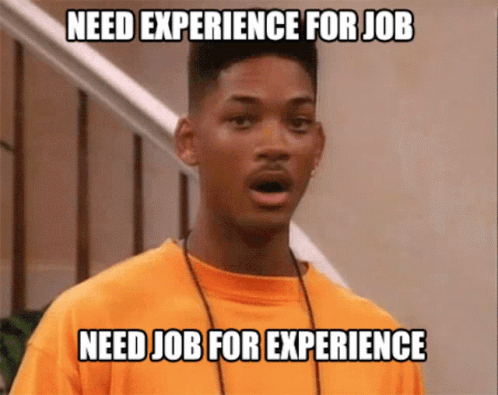
-
CELEBRATING OUR SUCCESS AT MHJC !!!
- WHANAU DAY OUT
- PRIZEGIVINGS

- FAREWELLS TO OUR YR10S

